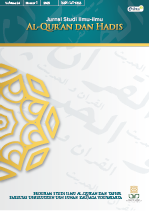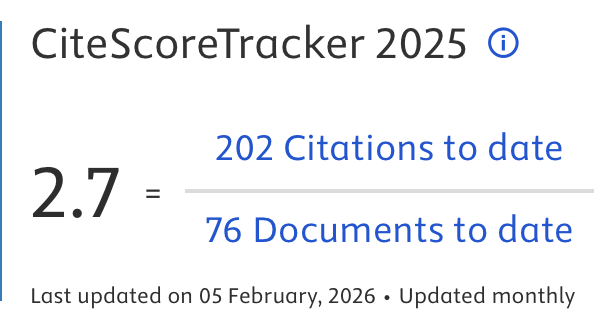Tarjumān Al-Mustafīd: Answering the Need for Accessible Qur'anic Interpretation for The Masses
DOI:
https://doi.org/10.14421/qh.v24i1.3892Keywords:
abd al-Raūf al-Fanṣūrī, Indonesian tafseer, contextualization, Tarjumān al-MustafīdAbstract
This article examines the interpretation model of Tarjumān al-Mustafīd as a means to address the need for Qur'anic interpretation for the general public. Using a qualitative method with content analysis and a systematic literature review, the study explores the approach used by Abd al-Raūf al-Fanṣūrī in his interpretation of the Qur'an. The results of the study indicate that al-Fanṣūrī's interpretation model includes three key elements: avoiding interpretations based solely on word meanings, providing context through asbāb al-nuzūl, narration isrāīlīyāt, historical accounts, and faidah letter explanations, and reconciling meanings to avoid controversial interpretations in both law and belief. The study concludes that Tarjumān al-Mustafīd is not a translation of classical interpretations, but rather a reproduction of al-Fanṣūrī's interpretation, referencing classical Arabic sources, and should not be referred to as a translation of Arabic interpretation into Malay. Overall, the interpretation model of Tarjumān al-Mustafīd provides a solution for addressing the need for Qur'anic interpretation for the general public and is a valuable contribution to the field of Qur'anic interpretation.
References
Downloads
Published
Issue
Section
License
Copyright (c) 2023 Chafid Wahyudi, Ika Khusnia Anggraini

This work is licensed under a Creative Commons Attribution-NonCommercial-NoDerivatives 4.0 International License.
Publishing your paper with Jurnal Studi Ilmu-ilmu al-Qur'an dan Hadis means that the author or authors retain the copyright in the paper. Jurnal Studi Ilmu-ilmu al-Qur'an dan Hadis uses license CC-BY-NC-ND or an equivalent license as the optimal license for the publication, distribution, use, and reuse of scholarly works. This license permits anyone to copy and redistribute the material in any medium or format and must give appropriate credit, provide a link to the license, and indicate if changes were made. If you remix, translate, transform or build upon the material you may use it for private use only and not for distribution. Jurnal Studi Ilmu-ilmu al-Qur'an dan Hadis granted an exclusive non-commercial reuse license by the author(s), but the author(s) are able to put the paper onto a website, distribute it to colleagues, give it to students, use it in your thesis, etc, so long as the use is not directed at a commercial advantage or toward private monetary gain. The author(s) can reuse the figures and tables and other information contained in their paper published by Jurnal Studi Ilmu-ilmu al-Qur'an dan Hadis in future papers or work without having to ask anyone for permission, provided that the figures, tables, or other information that is included in the new paper or work properly references the published paper as the source of the figures, tables or other information, and the new paper or work is not direct at a private monetary gain or commercial advantage.
Jurnal Studi Ilmu-ilmu al-Qur'an dan Hadis journal Open Acces articles are distrubuted under the Creative Commons Attribution-NonCommercial-NoDerivatives 4.0 International (CC BY-NC-ND 4.0). Article can be read, copy and redistribute the material ini any medium or format under the following conditions:
Attribution — You must give appropriate credit, provide a link to the license, and indicate if changes were made. You may do so in any reasonable manner, but not in any way that suggests the licensor endorses you or your use.
NonCommercial — You may not use the material for commercial purposes.
NoDerivatives — If you remix, transform, or build upon the material, you may not distribute the modified material.











